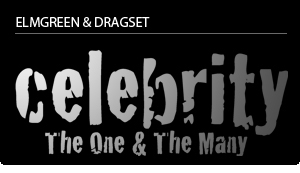|
Welfare Melancholia: Elmgreen and Dragset's Ambivalent Media Shannon Jackson “Beyond its architectural determinations, the scenic space of art soon absorbed a whole set of economic and political implications that artists set about deploying in a veritable dramaturgy of unveiling. Institutional critique or “contextual” art derived from this virtually unlimited expansion. But for many years, some Puritan superego forbade us from recognizing its original theatricality.” Patricia Faliguieres, “Playground,” A Theater Without Theater, 28-34, 33 “Whereas classical liberalism articulated a distinction, and at times even a tension, among the criteria for individual moral, associational, and economic actions…neoliberalism normatively constructs and interpellates individuals as entrepreneurial actors in every sphere of life.” Wendy Brown, “Neoliberalism and the End of Liberal Democracy,” Edgework, 37-59, 42 In October of 2008, kicking off the Frieze frenzy in London, Michael Elmgreen and Ingar Dragset opened their installation “Too Late” at the Victoria Miro gallery. While Frieze lost the most prominent headline coverage to angst-ridden articles on the United Kingdom's finanical crisis, the festival put its best foot forward. Its directors coordinated with prominent galleries and caterers to distract attention from stories of a bedraggled Gordon Brown attending to the effects of a de-regulated Anglosaxon economy. The opening week of Too Late also coincided with a one night showing of “a play” by Elmgreen and Dragset called Drama Queens at the Old Vic, as well as with a special publication insert in the journal Art Review authored and formatted by the duo. All three pieces – one could say, presciently – offered occasions for pondering the speculative foibles of art market malaise. As evidenced by their popular critical following, the work of Michael Elmgreen and Ingar Dragset have provided a vehicle for exploring crossmedia experimentation across theatrical, architectural, and visual registers. In this essay, I want to link this conflicted and oft-determined conversation across media systems to questions of social and political systems more generally. [...] Katalogauszug |

